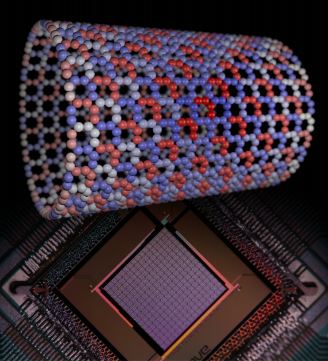D-Wave Computer Can Accurately Simulate Quantum Systems, Research Finds
D-Wave has announced today that its 2,000-qubit system was recently used to achieve a new milestone in quantum computing, demonstrating a topological phase transition. What that means is that the system could be used to make physical research and development significantly faster and cheaper.
D-Wave 2000Q Used As Accurate Simulator
The paper, entitled “Observation of topological phenomena in a programmable lattice of 1,800 qubits” and published in peer-reviewed journal Nature, demonstrates that the fully programmable D-Wave 2000Q quantum annealing computer can be used as an accurate simulator of quantum systems at a large scale.
The method used in this research can have broad implications for the discovery and development of new materials. The new paper follows another recent paper on D-Wave's quantum annealing computers, which demonstrated a different type of phase transition in a quantum spin-glass simulation. According to the company, these two papers show its system’s versatility in quantum simulation of materials, in addition to other tasks, such as optimization and machine learning.
Bringing Decades-Old Research To Life
According to D-Wave, the new results were based on decades-old research from the '70s done by theoretical physicists Vadim Berezinskii, J. Michael Kosterlitz and David Thouless, who predicted a new state of matter characterized by non-trivial topological properties. This work received the Nobel Prize for Physics in 2016. The D-Wave researchers implemented those theories on their 2000Q system to form a two-dimensional lattice of artificial spins.
Dr. Mohammad Amin, chief scientist at D-Wave, said:
“The work described in the Nature paper represents a landmark in the field of quantum computation: for the first time, a theoretically predicted state of matter was realized in quantum simulation before being demonstrated in a real magnetic material. This is a significant step toward reaching the goal of quantum simulation, enabling the study of material properties before making them in the lab, a process that today can be very costly and time consuming."
Beyond these recent achievements, which could prove useful in the coming years in the material science field, D-Wave said that its customers have already built over 70 prototype applications across a variety of other fields. These applications span optimization, machine learning, quantum material science, cybersecurity and more. The company noted that these applications often approach and sometimes even surpass conventional computing in terms of finding quality solutions to real-world problems.
Get Tom's Hardware's best news and in-depth reviews, straight to your inbox.
Lucian Armasu is a Contributing Writer for Tom's Hardware US. He covers software news and the issues surrounding privacy and security.
